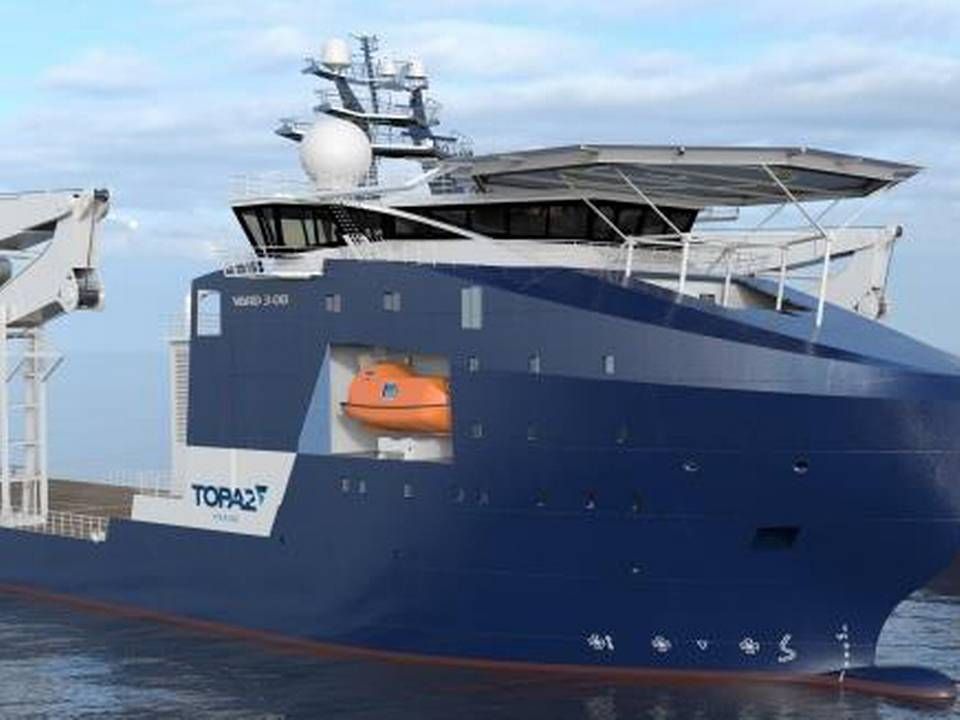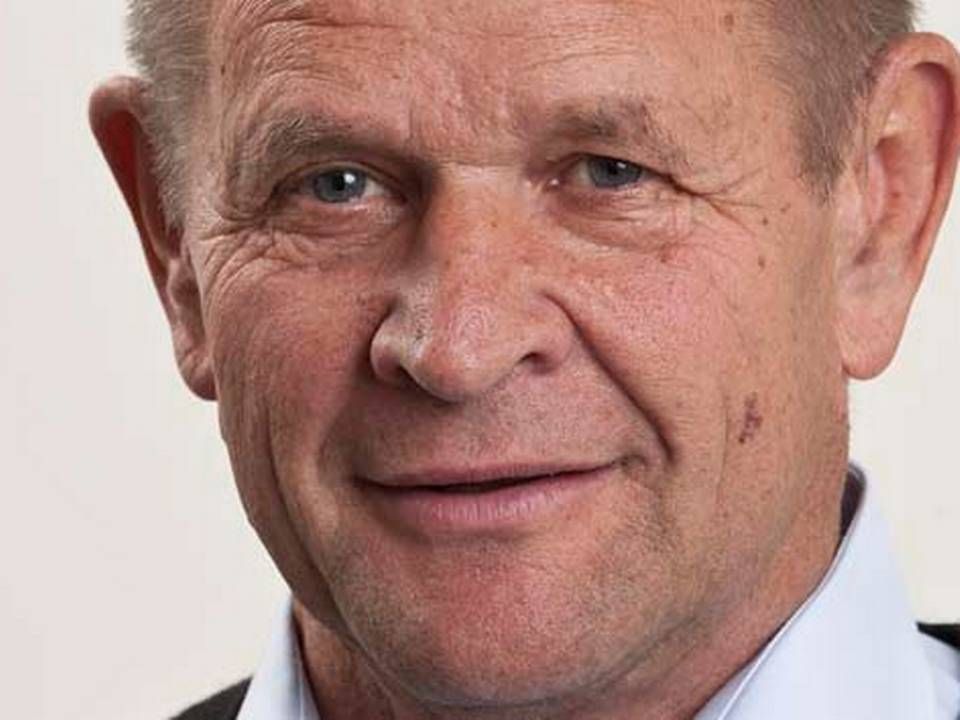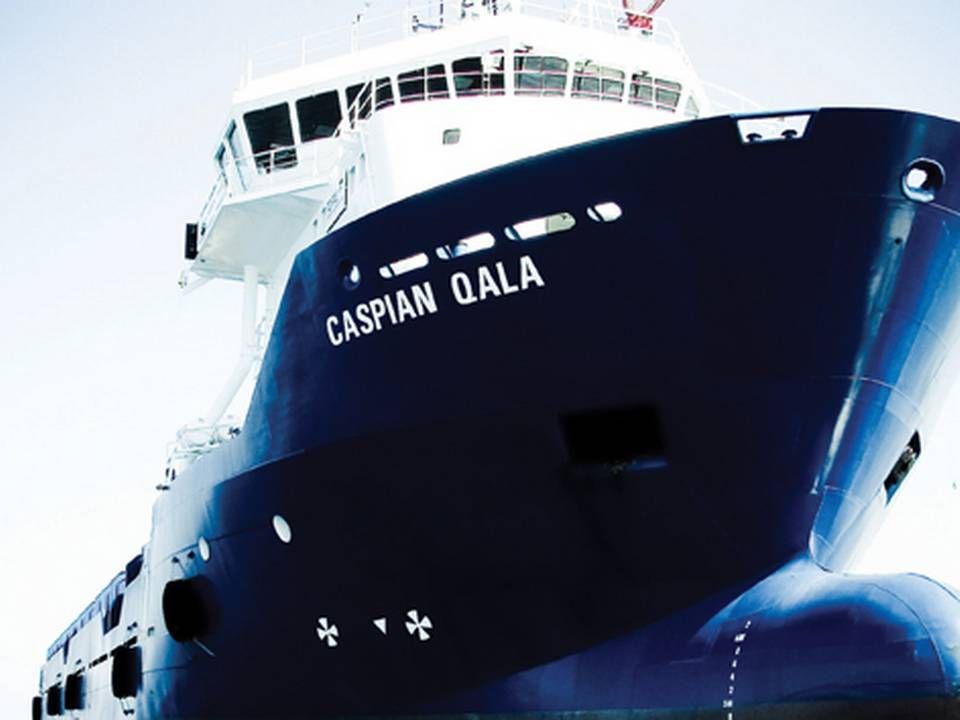Topaz to compete with Asians for the next 18 months

The market for offshore supply vessels was a bloodbath a year ago, and today the situation is even worse, explains René Kofod-Olsen, CEO of Dubai-based offshore carrier Topaz Energy and Marine.
"When people's balance sheets becomes so distressed that they have to do things that are unfair to the market on the short term, it has a huge impact on the market overall," he tells ShippingWatch.
He explains that, in the course of the past five or six months, a growing number of Asian offshore carriers have entered the Middle East market, which has otherwise been less affected by the sliding oil price than has been the case in the North Sea, for instance. And that even though there are sound players among the Asian carriers, contracts have been signed at rate levels where Topaz is not interested in playing.
"Ships are being sent in on rates that have to be below break even. Then one can hope that the market will change, so that this can be corrected, and if it doesn't change, well, one will at least die slow and painfully," he says.
Adapted to USD 40 per barrel
"We wanted to have an organization that can in principle survive in a USD 40 market. So we've removed costs totaling around USD 15 million from our organization," he says.
This also means that 20-30 employees were let go on a "Black Thursday" in October, and employees on land as well as on sea have had to take pay cuts.
West Africa on ice
Costs is not the only area in which Topaz has made drastic decisions in the past year. When ShippingWatch spoke to René Kofod-Olsen about a year ago, he projected that the market in West Africa, for which he had high expectations, would improve for Topaz during 2015. In the meantime, he has reduced the carrier's fleet in the region from 11 to 6 vessels. Two have been idled cold, while three have been moved to other regions.
Yet he still views Angola as a priority market for Topaz on the long term, and he still believes that Nigeria will at some point become lucrative. The carrier's six vessels in the region are currently deployed on short-term contracts while Topaz is bidding on longer contracts which, according to René Kofod-Olsen, will soon be settled. Though at rates that reflect the market.
"You have to take what you can get, and we're probably not going to sign really long contracts. But we are certainly willing to sign contracts for a year and a half or two years," he says.
Cashing in on the Caspian Sea
Things are looking different and rather more stable on Topaz's key market in the Caspian Sea, where the access conditions in themselves help keep the worst competition at bay. According to René Kofod-Olsen, it will cost USD 3-4 million to sail an offshore vessel that usually operates in the North Sea up through one of the two rivers which represent the only seaways from the rest of the world into the Caspian Sea, which is home to some of the biggest oil and gas discoveries in recent years. The high price to access the Caspian stems not least from the fact it be necessary to remove the top of the vessel, sail it through, and then reassemble it again, as the limited access routes lead through water locks and under bridges. And as such, there is no real spot market in the Caspian Sea, and the rates are fairly stable, even though they are lower now than they were prior to the fall in oil prices.
In spite of the fact that the markets, with the exception of the Caspian Sea, leave a lot to be desired, that 1,000 offshore vessels are idled around the world, and that more and more players are fighting at full strength to stay afloat, offshore is still a positive place to be, says the Topaz CEO. He explains that the oil companies' current unwillingness to invest in new fields also means that there is today not being discovered enough new resources to meet future demand, and herein also lies hope for the future, he says.
"There is a lot of oil out there which has yet to be discovered, but which will have to be found. As such, there will be a push throughout the industry when we have to start investing again, because this time will come," he says, adding:
"So my long-term view is that this is still a good industry in which to be. But the key is to survive until this time comes."
And when will that be?
"I think this is a kind of waiting game in which people are waiting to see how much the oil price can increase before new projects are launched again. My guess is that something will happen during the next 12-18 months."
Topaz notes declining activity in 2016
Blue Water owner: New Caspian Sea gig is the pinnacle
Blue Water and Topaz secure massive Kazakhstan contract
Related articles
Topaz notes declining activity in 2016
For subscribers
Blue Water owner: New Caspian Sea gig is the pinnacle
For subscribers
Blue Water and Topaz secure massive Kazakhstan contract
For subscribers





















